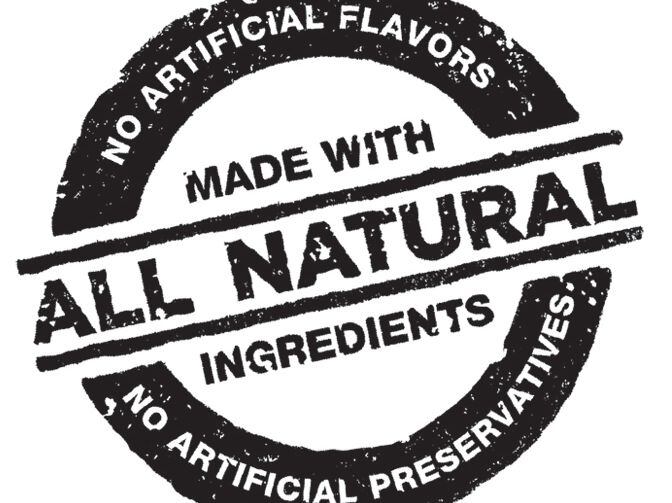Their comments came after judge Yvonne Gonzalez Rogers concluded that “deference to the FDA’s regulatory authority is the appropriate course” in the Elizabeth Cox vs Gruma Corp class action over ‘all-natural’ claims on Mission tortilla chips.
In an order on the case published yesterday, she added: “The court hereby refers to the FDA, for an administrative determination, the question of whether and under what circumstances food products containing ingredients produced using bio-engineered seed may or may not be labeled ‘Natural’ or ‘All Natural’ or ‘100% Natural’.”
Rogers, who had hinted she might take this course of action in a tentative ruling last month, went on to stay the action for six months, but added that this period “may be extended... upon a showing of good cause, including an indication from the FDA that it intends to resolve the issue”.
Finally, she said that Gruma’s motion to dismiss the case is “granted with respect to primary jurisdiction only, and is otherwise denied without prejudice to re-filing upon an order dissolving the stay ordered herein”.
Gruma attorney: 'This will provide clarity for manufacturers and the public'
Gregory Huffman, a partner in Thompson & Knight LLP's Dallas office representing Gruma, told FoodNavigator-USA that his client was "pleased that the federal court ruled in our favor".
He added: "Gruma hopes that the FDA will take this opportunity to provide clarity to manufacturers and the public about the labeling of bio-engineered foods."
While the FDA has not shown any inclination to come up with a legal definition of 'natural', or provide further guidance on its appropriate use, the key issue in this case relates to GMO labeling, a matter in which the FDA has held a pretty consistent position over the past 20 years, he claimed (see below).
Lawyer: 'Other courts should hold off on the GMO/all natural cases until the FDA decides whether to act'

Other attorneys representing food industry clients in similar consumer actions also welcomed the order.
David Biderman, partner in Perkins Coie’s Consumer Class Action Defense practice, told us: "This is a very important decision that should also be applied to the dozens of other cases where plaintiffs have challenged an 'all natural” label because the products contained GMOs".
He added: "This decision puts squarely before the FDA... whether GMOs can be labeled all natural. Now, other courts should hold off on the GMO/all natural cases until the FDA decides whether to act."
Plaintiffs attorneys have been attempting to create their own food labeling laws, and the FDA needs to put and end to it
Another legal source that has represented food clients in such cases told FoodNavigator-USA that she was "glad to see Judge Rogers recognize that this is squarely a question for the FDA, not one that should be needlessly clogging up our court system".
But she added: "It is, however, a question that the FDA has already (at least implicitly) answered - stating that food products may be labeled 'natural' if they don't contain artificial flavors, colors or preservatives, and that there is nothing misleading about labeling GM foods the same way as other foods.
"The fact that any significant portion of consumers has somehow been misled into thinking that 'natural' means GMO-free is entirely implausible. Plaintiffs attorneys have been attempting to create their own food labeling laws, and the FDA needs to put and end to it."
CSPI: FDA highly unlikely to determine this issue
However, other legal experts said we should be prepared for a long wait if this matter is now in the FDA's hands, as the agency is not obliged to come to a decision just because the court has asked it to.
Stephen Gardner, director of litigation at the Center for Science in the Public Interest (CSPI), which has sued scores of food and beverage giants over allegedly false and misleading claims, said that “CSPI's experience, as well as that of other lawyers, has been that FDA will not issue advisory opinions.”

He added: “It is even more unlikely to do so when to do so would involve [making a] decision [about] whether or not consumers consider GMOs to be natural.”
The FDA’s position on natural claims and GMO labeling
With respect to the use of the term ‘natural’ on food labels, the FDA published non-binding guidance in 1993 saying natural means that “nothing artificial or synthetic (including all color additives regardless of source) has been included in, or has been added to, a food that would not normally be expected to be in the food”.
But it did not clarify the status of foods containing HFCS, GMOs and a raft of other ingredients that many stakeholders believe do not belong in a product labeled as ‘all-natural’.

As for GMOs, in a guidance document you can read here, the agency says it is “not aware of any data or other information that would form a basis for concluding that the fact that a food or its ingredients was produced using bioengineering is a material fact that must be disclosed [on food labels]. FDA is therefore reaffirming its decision to not require special labeling of all bioengineered foods.”
The complaint (Cox v. Gruma Corporation, No. 12-6502) was filed on December 21, 2012, by Elizabeth Cox, who argued that Gruma had made “false and misleading statements that are likely to deceive reasonable consumers” by describing Mission Tortilla chips as ‘all natural’, “when in fact they are not because they contain GMOs in the form of corn and/or corn derivatives”.
'Natural' label claims were a hot topic at FoodNavigator-USA's Natural & Clean Label Trends 2013 event last month.
To access all presentations from this event on demand, click here.
